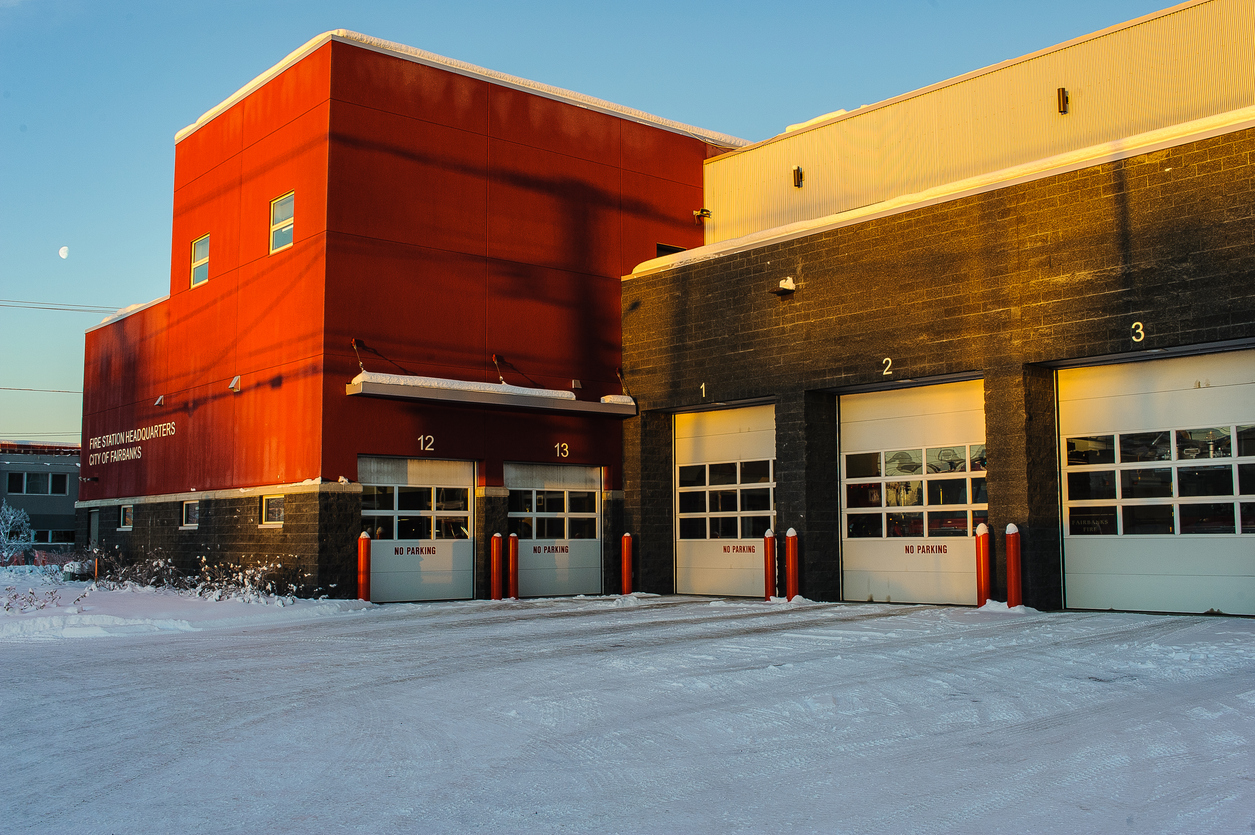
Winter creates more than just operational stress for fire departments — it introduces serious risks to structures, equipment, and essential gear. For insurance agents and department leaders, these cold-weather hazards are both a challenge and an opportunity. It’s the perfect time to assess how fire department insurance can mitigate property and equipment losses before the first deep freeze sets in.
Let’s examine the risks departments face, how they can reduce potential losses, and why tailored insurance is critical to winter readiness.
What Property Risks Do Fire Departments Face in Winter?
When winter hits, fire stations face a variety of building-related hazards, each capable of disrupting operations, damaging infrastructure, or triggering costly claims.
Frozen Pipes and Suppression Systems
Frozen pipes and suppression systems are among the most common and damaging winter hazards. Like many commercial buildings, fire stations often have exposed plumbing in attics, basements, or exterior walls that can freeze and burst during cold snaps, releasing thousands of gallons of water and damaging drywall, flooring, and electrical systems.
Copper and PVC pipes are particularly vulnerable to cracking in extreme cold, while PEX piping is more freeze-resistant due to its flexibility. For fire stations, such leaks can disrupt operations or even shut down entire zones of the facility.
Snow Accumulation and Ice Dams
Snow accumulation and ice dams put flat and low-slope roofs under stress. Ice dams form when melting snow refreezes at the roof edge, trapping water and forcing it under shingles, leading to leaks, sagging, and long-term structural problems. Heavy snow can also overload aging roofs, especially in regions where temperatures fluctuate above and below freezing. Departments should inspect roofing materials and drainage paths before the season begins.
Heating System Failure and Power Outages
Heating system failure and power outages can compound every other problem. HVAC systems often go unchecked until winter reveals performance issues like clogged filters, weak airflow, or fuel inefficiencies. Without heat, pipes freeze, suppression systems can fail, and equipment becomes brittle. If the station loses power — even temporarily — critical operations could halt without a functioning generator.
These risks are even more pronounced in volunteer or rural fire departments, where facilities often lack backup systems — such as secondary heat sources or emergency power — making them more vulnerable to outages and cold-related damage. Heating systems may be outdated, and pipes are more likely to run through unconditioned spaces, increasing the likelihood of freeze-related failures.
How Does Winter Weather Threaten Equipment and Gear?
Cold exposure affects more than buildings — it directly impacts readiness:
- Engines and apparatus stored in cold bays or outside can suffer from thickened lubricants, low battery charge, and cracked water lines in pumps. This delays deployment during time-sensitive calls.
- Turnout gear and hoses exposed to freezing temperatures may stiffen, crack, or lose protective performance — especially if stored damp or wet.
- Portable and mobile equipment, including rescue tools, radios, generators, fans, and lighting systems, is often stored in trailers or auxiliary buildings. These areas are typically underinsulated, exposing high-value tools to moisture, corrosion, and cold-related breakdowns.
Proper equipment storage is only part of the solution. Comprehensive portable and mobile equipment coverage from Provident FirePlus includes guaranteed replacement cost, no depreciation, and no coinsurance — ensuring departments aren’t left underinsured when loss occurs.
What Can Departments Do To Minimize Seasonal Damage?
Agents can provide real value by sharing winter risk-prevention strategies with fire departments. Start with this checklist:
- Insulate and heat vulnerable pipes: Use foam insulation or heat tape. Focus on exposed lines in attics, exterior walls, and near bay doors.
- Inspect and clear roofs and gutters: Remove debris and ensure drains are functional. Prevent ice dams with heating cables or routine snow removal.
- Test and maintain heating and HVAC systems: Clean filters, inspect flues, and check for carbon monoxide leaks. Encourage clients to set up a maintenance contract.
- Confirm generator function and fuel supply: A nonworking generator during a storm is as risky as no generator at all. Run full-load tests monthly.
- Store gear properly: Rotate turnout gear to prevent freeze damage. Ensure equipment is dry before storage. Avoid placing tools directly on concrete floors, which retain moisture and cold.
- Seal windows and doors: Address drafts using caulking or weatherstripping. Poor insulation drives up costs and increases the risk of heating system strain.
Preventive maintenance protects gear and strengthens a department’s insurance profile, reducing the likelihood of claims and helping maintain favorable terms.
Why Fire Department Insurance Is Critical for Winter Readiness
A strong insurance program doesn’t just pay for losses — it prevents them. With seasonal risk increasing, now is the time to ensure your clients have the right coverage for:
- Building damage from frozen pipes, roof collapse, or HVAC failure
- Equipment and gear degradation caused by freezing temperatures or improper storage
- Utility interruption and backup system failures
- Uninsurable losses that could result from deferred maintenance
Fire departments rely on uninterrupted operations. When heating fails or gear is damaged, response time and public safety suffer. The right fire department insurance program delivers financial protection, risk mitigation support, and peace of mind during winter’s toughest months.
Now’s the time for a seasonal review. If your clients haven’t evaluated their winter readiness, we’re here to help. A few smart adjustments could make all the difference in keeping departments fully operational — and fully protected — this winter.
About Provident FirePlus
Founded in 1902, our rich history includes the creation of custom firefighter insurance benefits in 1928. Today, Provident FirePlus continues to be a pioneer in developing insurance programs for firefighters, EMS providers, municipal entities, and law enforcement. In addition, we provide Special Risks insurance for various volunteer and nonprofit groups. Call us today at 855-201-8880 to speak with one of our representatives.

